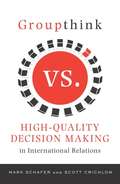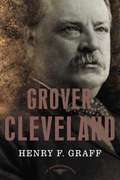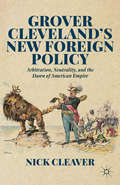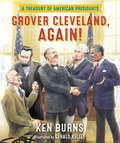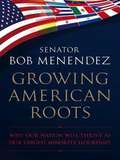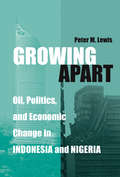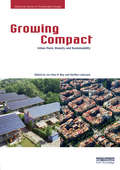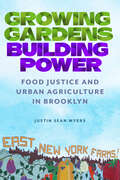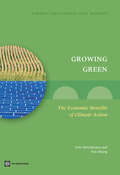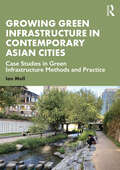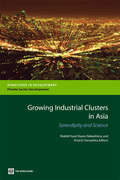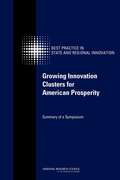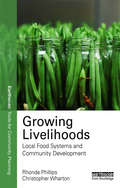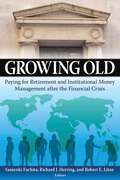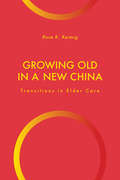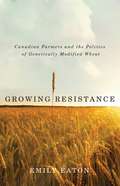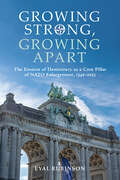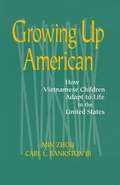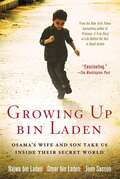- Table View
- List View
Groupthink Versus High-Quality Decision Making in International Relations
by Scott Crichlow Mark SchaferAre good and bad outcomes significantly affected by the decision-making process itself? Indeed they are, in that certain decision-making techniques and practices limit the ability of policymakers to achieve their goals and advance the national interest. The success of policy often turns on the quality of the decision-making process. Mark Schafer and Scott Crichlow identify the factors that contribute to good and bad policymaking, such as the personalities of political leaders, the structure of decision-making groups, and the nature of the exchange between participating individuals. Analyzing thirty-nine foreign-policy cases across nine administrations and incorporating both statistical analyses and case studies, including a detailed examination of the decision to invade Iraq in 2003, the authors pinpoint the factors that are likely to lead to successful or failed decision making, and they suggest ways to improve the process. Schafer and Crichlow show how the staffing of key offices and the structure of central decision-making bodies determine the path of an administration even before topics are introduced. Additionally, they link the psychological characteristics of leaders to the quality of their decision processing. There is no greater work available on understanding and improving the dynamics of contemporary decision making.
Grover Cleveland (The American Presidents Series)
by Arthur M. Schlesinger Henry F. GraffThe presidential historian Henry F. Graff revives Cleveland's fame, explaining how he fought to restore stature to the office in the wake of several weak administrations.
Grover Cleveland's New Foreign Policy
by Nick CleaverWhereas the Spanish-American War has long been studied as a turning point in American history, Grover Cleveland's foreign policy. Nick Cleaver's study illuminates the dynamism and ideals of Cleveland's diplomatic moment, revealing their continuities with the engagement and expansionism of the McKinley presidency.
Grover Cleveland, Again!: A Treasury of American Presidents
by Ken Burns Gerald KelleyA gorgeous collection of American presidents filled with fun facts and sparkling with personality, from nonfiction master Ken Burns. This special treasury from America's beloved documentarian Ken Burns brings the presidents to life for our nation's children. Each president is given a lushly illustrated spread with curated stories and information to give readers of all ages a comprehensive view of the varied and fascinating characters who have led our nation (with the exception of Grover Cleveland--the only president to serve two non-consecutive terms--who gets two spreads!). A must-have for Ken's many fans, classrooms, and anyone who wishes to gain a greater understanding and appreciation for our country. "A buoyant gallery, up to date, handsomely framed, and, in this particular election year, timely too."--Kirkus ReviewsFrom the Hardcover edition.
Grow Up!: Life Isn't Safe, but It's Good
by Everett PiperThe &“snowflake&” generation has graduated, and they are taking root across our nation. The &“snowflake&” rebellion and its juvenile temper tantrums are far from over. As the pampered and bubble-wrapped adolescents of Berkeley and Brown graduate, petulant progressivism is taking root in our nation&’s corporations, courts, and even our Congress. A simple glance at the daily news reveals we now stand on the cliff of a cultural crisis where vitriol has replaced virtue, identity politics trump principle, character no longer matters, and elected leaders act more like spoiled children than mature adults. In Grow Up, the nearly two-decades-long president of Oklahoma Wesleyan University and the national bestselling author of Not a Day Care, Dr. Everett Piper, presents common-sense solutions to the lunacy Americans face on the news, in the classroom, and from the mouths of elected officials in a powerful reminder that in the end, civilization relies on adults.
Growing American Roots
by Menendez Senator BobThe high-profile senator shares his vision of a promising future for America with Hispanics playing an essential and valued role. Senator Bob Menendez has long been disturbed by the rhetoric of media figures like Lou Dobbs and Rush Limbaugh, who, he believes, are spreading fear and misconceptions about the Latino community. For Menendez, who has held the highest-ranking position for a Hispanic in congressional history, it is about time the truth about Hispanics and their potential in this nation is brought into the spotlight-for all the right reasons. Instead of viewing Latinos as the growing cause of many of America's problems, he sees quite the opposite-and in this book he takes a unique approach by imagining a hopeful future for our nation. With the step-by-step plan that Menendez has devised and proposes in this book, the United States' future will be made brighter and more successful precisely because of, not in spite of, the burgeoning influence of the Hispanic population as it "grows its American roots. "
Growing American Roots
by Senator Bob MenendezFrom the highest-ranking Hispanic in congressional history comes an inspiring vision for our country's future. For Senator Bob Menendez, it's about time the truth about Hispanics and their potential in this nation is brought into the spotlight. Instead of viewing Latinos as the cause of many of America's problems, he sees quite the opposite-and in this book he takes a unique approach by imagining a hopeful future for our nation. With the step-by-step plan that Menendez has devised, the United States' future will be made brighter and more successful precisely because of, not in spite of, the burgeoning influence of the Hispanic population as it "grows its American roots."
Growing Apart: Oil, Politics, and Economic Change in Indonesia and Nigeria
by Peter M. Lewis"Growing Apartis an important and distinguished contribution to the literature on the political economy of development. Indonesia and Nigeria have long presented one of the most natural opportunities for comparative study. Peter Lewis, one of America's best scholars of Nigeria, has produced the definitive treatment of their divergent development paths. In the process, he tells us much theoretically about when, why, and how political institutions shape economic growth. " —Larry Diamond, Senior Fellow, Hoover Institution "Growing Apartis a careful and sophisticated analysis of the political factors that have shaped the economic fortunes of Indonesia and Nigeria. Both scholars and policymakers will benefit from this book's valuable insights. " —Michael L. Ross, Associate Professor of Political Science, Chair of International Development Studies, UCLA "Lewis presents an extraordinarily well-documented comparative case study of two countries with a great deal in common, and yet with remarkably different postcolonial histories. His approach is a welcome departure from currently fashionable attempts to explain development using large, multi-country databases packed with often dubious measures of various aspects of 'governance. '" —Ross H. McLeod, Editor,Bulletin of Indonesian Economic Studies "This is a highly readable and important book. Peter Lewis provides us with both a compelling institutionalist analysis of economic development performance and a very insightful comparative account of the political economies of two highly complex developing countries, Nigeria and Indonesia. His well-informed account generates interesting findings by focusing on the ability of leaders in both countries to make credible commitments to the private sector and assemble pro-growth coalitions. This kind of cross-regional political economy is often advocated in the profession but actually quite rare because it is so hard to do well. Lewis's book will set the standard for a long time. " —Nicolas van de Walle, John S. Knight Professor of International Studies, Cornell University Peter M. Lewis is Associate Professor and Director of the African Studies Program, Johns Hopkins University, School of Advanced International Studies.
Growing Compact: Urban Form, Density and Sustainability
by Steffen Lehmann Joo Hwa BayGrowing Compact: Urban Form, Density and Sustainability explores and unravels the phenomena, links and benefits between density, compactness and the sustainability of cities. It looks at the socio-climatic implications of density and takes a more holistic approach to sustainable urbanism by understanding the correlations between the social, economic and environmental dimensions of the city, and the challenges and opportunities with density. The book presents contributions from internationally well-known scholars, thinkers and practitioners whose theoretical and practical works address city planning, urban and architectural design for density and sustainability at various levels, including challenges in building resilience against climate change and natural disasters, capacity and integration for growth and adaptability, ageing, community and security, vegetation, food production, compact resource systems and regeneration.
Growing Gardens, Building Power: Food Justice and Urban Agriculture in Brooklyn (Nature, Society, and Culture)
by Justin Sean MyersAcross the United States marginalized communities are organizing to address social, economic, and environmental inequities through building community food systems rooted in the principles of social justice. But how exactly are communities doing this work, why are residents tackling these issues through food, what are their successes, and what barriers are they encountering? This book dives into the heart of the food justice movement through an exploration of East New York Farms! (ENYF!), one of the oldest food justice organizations in Brooklyn, and one that emerged from a bottom-up asset-oriented development model. It details the food inequities the community faces and what produced them, how and why residents mobilized to turn vacant land into community gardens, and the struggles the organization has encountered as they worked to feed residents through urban farms and farmers markets. This book also discusses how through the politics of food justice, ENYF! has challenged the growth-oriented development politics of City Hall, opposed the neoliberalization of food politics, navigated the funding constraints of philanthropy and the welfare state, and opposed the entrance of a Walmart into their community. Through telling this story, Growing Gardens, Building Power offers insights into how the food justice movement is challenging the major structures and institutions that seek to curtail the transformative power of the food justice movement and its efforts to build a more just and sustainable world.
Growing Green
by Uwe Deichmann Fan ZhangPollution from fossil fuels and degraded natural lands are raising the earthâ TMs temperature. The evidence of the causes of global warming is clear, as are its consequences. The economic impacts of climate change are already apparent and they threaten development gains. Extreme weather events have brought severe droughts to Central Asia, heat waves and forest fires to Russia, and floods to Southeastern Europe. Unchecked emissions will come at rising economic cost and increasing risk to individuals. There is a clear case for all of the worldâ TMs economies to move to a low-carbon growth path. Yet, climate action has been inadequate, especially in Eastern Europe and Central Asia (ECA). With prospects of a global climate agreement uncertain, this report identifies the actions that governments in the region can take to reduce the carbon footprints of their economies. It shows that many of these actions will more than pay for themselvesâ "and quite quickly when indirect benefits such as better health and increased competitiveness are considered. To realize these benefits, policy makers in ECA need to quickly move on three sets of priorities: use energy much more efficiently, gradually move to cleaner energy sources, and increase carbon capture in soils and forests. This will require transformations in power generation, industrial production, mobility, city living, and in farming and forestry. Policy makers are justifiably worried that climate action may jeopardize economic performance and strain the budgets of poorer families. The report shows how well-designed growth and social policies can make climate action growth-enhancing while protecting the living standards of less-well-off households.
Growing Green Infrastructure in Contemporary Asian Cities: Case Studies in Green Infrastructure Methods and Practice
by Ian MellGrowing Green Infrastructure in Contemporary Asian Cities examines to what extent green infrastructure (GI) is being implemented in East and Southeast Asian cities. The book reflects upon the integration of contemporary approaches to landscape planning alongside traditional forms of green space design and cultural understandings of the landscape in China, Hong Kong, Japan, Singapore, and South Korea. Working from a multi-locational perspective, the book illustrates how political, socio-cultural, economic, and ecological factors influence the delivery of GI and the consequences of these decisions. The book provides a set of best practice recommendations for the design, development, and management of greener urban areas. It both explains how GI is being utilised in East and Southeast Asia to address climate change, promote economic prosperity, and support the development of more livable places, and identifies future trends in its use. It is a key resource for any practitioners, students, and academics working in landscape planning and green infrastructure in an Asian context.
Growing Greener: Putting Conservation Into Local Plans And Ordinances
by Randall G. ArendtGrowing Greener is an illustrated workbook that presents a new look at designing subdivisions while preserving green space and creating open space networks. Randall Arendt explains how to design residential developments that maximize land conservation without reducing overall building density, thus avoiding the political and legal problems often associated with "down-zoning."Arendt offers a three-pronged strategy for shaping growth around a community's natural and cultural features, demonstrating ways of establishing or modifying the municipal comprehensive plan, zoning ordinance, and subdivision ordinance to include a strong conservation focus. Open space protection becomes the central organizing principle for new residential development, and the open space that is protected is laid out to form an interconnected system of protected lands across a community.Growing Greener builds upon and expands the basic ideas presented in Arendt's Conservation Design for Subdivisions, broadening the scope to include more detailed sections on the comprehensive planning process and information on how zoning ordinances can be updated to incorporate the concept of conservation design. It is the first practical publication to explain in detail how resource-conserving development techniques can be put into practice by municipal officials, residential developers, and site designers, and it offers a simple and straightforward approach to balancing opportunities for developers and conservationists.
Growing Industrial Clusters in Asia: Serendipity and Science
by Shahid Yusuf Kaoru Nabeshima Shoichi YamashitaIndustrial clusters in Silicon Valley, Hsinchu Park, and northern Italy, and in the vicinity of Cambridge, U.K., have captured the imagination of policymakers, researchers, city planners and business people. Where clusters take root, they can generate valuable spillovers, promote innovation, and create the critical industrial mass for sustained growth. For cities such as Kitakyushu, Japan, that are faced with the erosion of their traditional industrial base and are threatened by economic decline, creating a cluster that would reverse the downward trends is enormously attractive. Growing Industrial Clusters in Asia offers practical guidance on the nature of clusters and the likely efficacy of measures that could help build a cluster. It draws on the experience of both established dynamic clusters and newly emerging ones that show considerable promise. The insights that result from its analysis will be of particular interest to policy makers, urban planners, business people, and researchers.
Growing Innovation Clusters for American Prosperity: Summary of a Symposium
by The National Academy of SciencesGrowing Innovation Clusters for American Prosperity
Growing Livelihoods: Local Food Systems and Community Development (Earthscan Tools for Community Planning)
by Rhonda Phillips Chris WhartonCommunity Planning is starting to include a broader food systems focus, spanning topics such as nutrition and health outcomes, sustainable farming practices, economic and social implications of local food production, distribution, and consumption. Together, these issues are a driving force for the passions of those seeking positive change in their communities through healthy food. The purpose of this book is to explore how and where local food and farms, as part of a local or regional food system, can positively impact both economic development and overall well-being of communities. Across North America, there are good examples of the ways in which innovative local food systems provide opportunities for: increasing job growth and entrepreneurship; retaining local farmers on their land while nourishing their community; and providing communities places to congregate, bond, and become closer-knit. Six such examples are highlighted, each illustrating a novel model offering unique contributions to community economic health and well-being. These important cases offer practitioners, advocates, academics, and students insight into how applications can be built or studied in their own communities.
Growing Old
by Richard J. Herring Robert E. Litan Yasuyuki FuchitaWhile the immediate dangers from the recent financial crisis have abated--much of the financial system has returned to profitability and the economy is growing, albeit slowly--the damage to the economy will linger for years. Among the many impacts is the problem that may be most acute in the United States: how state and local governments and private companies will honor their obligations under defined benefit (DB) pension plans. Institutional investors also confront new difficulties in the low-interest-rate environment that has prevailed since the onset of the crisis. East Asian economies, namely in Japan, Korea, and China, also face pension issues as their populations age.In Growing Old, experts from academia and the private sector consider the hard questions regarding the future of pension plans and institutional money management, both in the United States and in Asia. This volume is the latest collaboration between the Brookings Institution and the Nomura Institute of Capital Markets Research on issues confronting the financial sector of common interest to audiences in the United States and Japan.Contributors: Olivia S. Mitchell (Wharton School, University of Pennsylvania), Akiko Nomura (Nomura Institute of Capital Markets Research), Robert Novy-Marx (Simon Graduate School of Business, University of Rochester), Betsy Palmer (MFS Investment Management), Robert Pozen (Harvard Business School), Joshua Rauh (Kellogg School of Management, Northwestern University), Natalie Shapiro (MFS Investment Management)
Growing Old
by Richard J. Herring Robert E. Litan Yasuyuki FuchitaWhile the immediate dangers from the recent financial crisis have abated-much of the financial system has returned to profitability and the economy is growing, albeit slowly-the damage to the economy will linger for years. Among the many impacts is the problem that may be most acute in the United States: how state and local governments and private companies will honor their obligations under defined benefit (DB) pension plans. Institutional investors also confront new difficulties in the low-interest-rate environment that has prevailed since the onset of the crisis. East Asian economies, namely in Japan, Korea, and China, also face pension issues as their populations age.In Growing Old, experts from academia and the private sector consider the hard questions regarding the future of pension plans and institutional money management, both in the United States and in Asia. This volume is the latest collaboration between the Brookings Institution and the Nomura Institute of Capital Markets Research on issues confronting the financial sector of common interest to audiences in the United States and Japan.Contributors: Olivia S. Mitchell (Wharton School, University of Pennsylvania), Akiko Nomura (Nomura Institute of Capital Markets Research), Robert Novy-Marx (Simon Graduate School of Business, University of Rochester), Betsy Palmer (MFS Investment Management), Robert Pozen (Harvard Business School), Joshua Rauh (Kellogg School of Management, Northwestern University), Natalie Shapiro (MFS Investment Management)
Growing Old in a New China: Transitions in Elder Care (Global Perspectives on Aging)
by Rose K. KeimigGrowing Old in a New China: Transitions in Elder Care is an accessible exploration of changing care arrangements in China. Combining anthropological theory, ethnographic vignettes, and cultural and social history, it sheds light on the growing movement from home-based to institutional elder care in urban China. The book examines how tensions between old and new ideas, desires, and social structures are reshaping the experience of caring and being cared for. Weaving together discussions of family ethics, care work, bioethics, aging, and quality of life, this book puts older adults at the center of the story. It explores changing relationships between elders and themselves, their family members, caregivers, society, and the state, and the attempts made within and across these relational webs to find balance and harmony. The book invites readers to ponder the deep implications of how and why we care and the ways end-of-life care arrangements complicate both living and dying for many elders.
Growing Resistance: Canadian Farmers and the Politics of Genetically Modified Wheat
by Emily EatonIn 2004 Candian farmers led an international coalition to a major victory for the anit-GM movement by defeating the introduction of Monsanto's genetically modified wheat. Canadian farmers' strong opposition to GM wheat marked a stark contrast to previous producer acceptance of other genetically modified crops. By 2005, for example, GM canola accounted for 78 percent of all canola grown nationally. So why did farmers stand up for wheat? In Growing Resistance, Emily Eaton reveals the motivating factors behind farmer opposition to GM wheat. She illustrates wheat's cultural, historical, and political significance on the Canadian prairies as well as its role in crop rotation, seed saving practices, and the economic livelihoods of prairie farmers. Through interviews with producers, industry organizations, and biochemical companies, Eaton demonstrates how the inclusion of producer interests was integral to the coalition's success in voicing concerns about environmental implications, international market opposition to GMOs, and the lack of transparency and democracy in Canadian biotech policy and regulation. Growing Resistance is a fascinating study of successful coalition building, of the need to balance local and global concerns in activist movements, and of the powerful forces vying for control of food production.
Growing Smarter: Learning and Equitable Development in East Asia and Pacific (World Bank East Asia and Pacific Regional Report)
by World BankOne-quarter of the world’s school-age children live in East Asia and Pacific. During the past 50 years, some economies in the region have successfully transformed themselves by investing in the continuous upgrading of the knowledge, skills, and abilities of their workforce. Through policy foresight, they have produced graduates with new levels of knowledge and skills almost as fast as industries have increased their demand for skilled workers. Yet the success of these high-performing systems has not been replicated throughout the region. Tens of millions of students are in school but not learning, and as many as 60 percent of students remain in school systems that are struggling to escape from the global learning crisis or in systems where performance is likely poor. Many students in these systems fail to reach basic levels of proficiency in key subjects and are greatly disadvantaged because of it. Growing Smarter: Learning and Equitable Development in East Asia and Pacific focuses on the experiences of economies in the region that have been able to expand schooling and learning and showcases those that have managed to pursue successful education reforms at scale. By examining these experiences, the report provides both diagnoses and detailed recommendations for improvement not only for education systems within East Asia and Pacific but also for countries across the globe. In East Asia and Pacific, the impressive record of success in education in some low- and middle-income countries is proof of concept that schooling in resource-constrained contexts can lead to learning for all. This report identifies the policies and practices necessary to ensure that students learn and suggests how countries can improve learning outcomes.
Growing Strong, Growing Apart: The Erosion of Democracy as a Core Pillar of NATO Enlargement, 1949–2023 (SUNY series, James N. Rosenau series in Global Politics)
by Eyal RubinsonSince its establishment, NATO has admitted a variety of new members in several enlargement rounds, even though some of these countries fall short of the organizational expectations of democracy—as stipulated in an elaborate scheme of texts, speeches, and statements. Growing Strong, Growing Apart maintains that this policy results from gradual erosion in the prominence of democratic discourse within the organization, normalizing deviations from previous optimistic expectations that became increasingly unsustainable after the end of the Cold War. Eyal Rubinson's analysis of NATO's conduct in this regard builds on archival research and interviews with NATO officials and senior member states' representatives. He discusses this theme in depth through detailed case studies, each covering a different period, emphasizing the place of cognitive processes in international organizations’ decision-making.
Growing Up American: How Vietnamese Children Adapt to Life in The United States
by Min Zhou Carl L. BankstonVietnamese Americans form a unique segment of the new U. S. immigrant population. Uprooted from their homeland and often thrust into poor urban neighborhoods, these newcomers have nevertheless managed to establish strong communities in a short space of time. Most remarkably, their children often perform at high academic levels despite difficult circumstances. Growing Up American tells the story of Vietnamese children and sheds light on how they are negotiating the difficult passage into American society. Min Zhou and Carl Bankston draw on research and insights from many sources, including the U. S. census, survey data, and their own observations and in-depth interviews. Focusing on the Versailles Village enclave in New Orleans, one of many newly established Vietnamese communities in the United States, the authors examine the complex skein of family, community, and school influences that shape these children's lives. With no ties to existing ethnic communities, Vietnamese refugees had little control over where they were settled and no economic or social networks to plug into. Growing Up American describes the process of building communities that were not simply transplants but distinctive outgrowths of the environment in which the Vietnamese found themselves. Family and social organizations re-formed in new ways, blending economic necessity with cultural tradition. These reconstructed communities create a particular form of social capital that helps disadvantaged families overcome the problems associated with poverty and ghettoization. Outside these enclaves, Vietnamese children faced a daunting school experience due to language difficulties, racial inequality, deteriorating educational services, and exposure to an often adversarial youth subculture. How have the children of Vietnamese refugees managed to overcome these challenges? Growing Up American offers important evidence that community solidarity, cultural values, and a refugee sensibility have provided them with the resources needed to get ahead in American society. Zhou and Bankston also document the price exacted by the process of adaptation, as the struggle to define a personal identity and to decide what it means to be American sometimes leads children into conflict with their tight-knit communities. Growing Up American is the first comprehensive study of the unique experiences of Vietnamese immigrant children. It sets the agenda for future research on second generation immigrants and their entry into American society.
Growing Up Biden: A Memoir
by Valerie Biden Owens**INSTANT NEW YORK TIMES BESTSELLER**A memoir from Valerie Biden Owens, Joe Biden’s younger sister, trusted confidante and lifelong campaign manager. Valerie, one of the first female campaign managers in United States history, writes of the role of family, faith, and fate in shaping her life, and the power of empathy and kindness in the face of turmoil and division. Growing Up Biden details Valerie’s decades-long professional career in politics, and the central role she played in her brother’s life as an insightful adviser, an ever-loyal advocate and best friend. This memoir, full of candor and warmth, brings readers into the Biden home and shares stories from growing up in Delaware as the only daughter of the close-knit Irish Catholic family. Valerie writes in a compelling, relatable way about the challenges she faced breaking through gender barriers, the elusive nature of confidence, and navigating professional responsibilities while raising children.
Growing Up Bin Laden: Osama's Wife and Son Take Us Inside Their Secret World
by Jean Sasson Najwa Bin Laden Omar Bin LadenIn their own words, Osama bin Laden's wife and son tell the astonishing story of the man they knew—or thought they knew—before September 11, 2001. <P><p> The world knows Osama bin Laden as the most wanted terrorist of our time. But people are not born terrorists, and bin Laden has carefully guarded the details of his private life—until now, when his first wife and fourth-born son break the silence to take us inside his strange and secret world. <P><P>In spine-tingling detail, Jean Sasson tells their story of life with a man whose growing commitment to violent jihad led him to move his wives and children from an orderly life to one of extreme danger, even choosing the teenage Omar to accompany him to the mountain fortress of Tora Bora.
